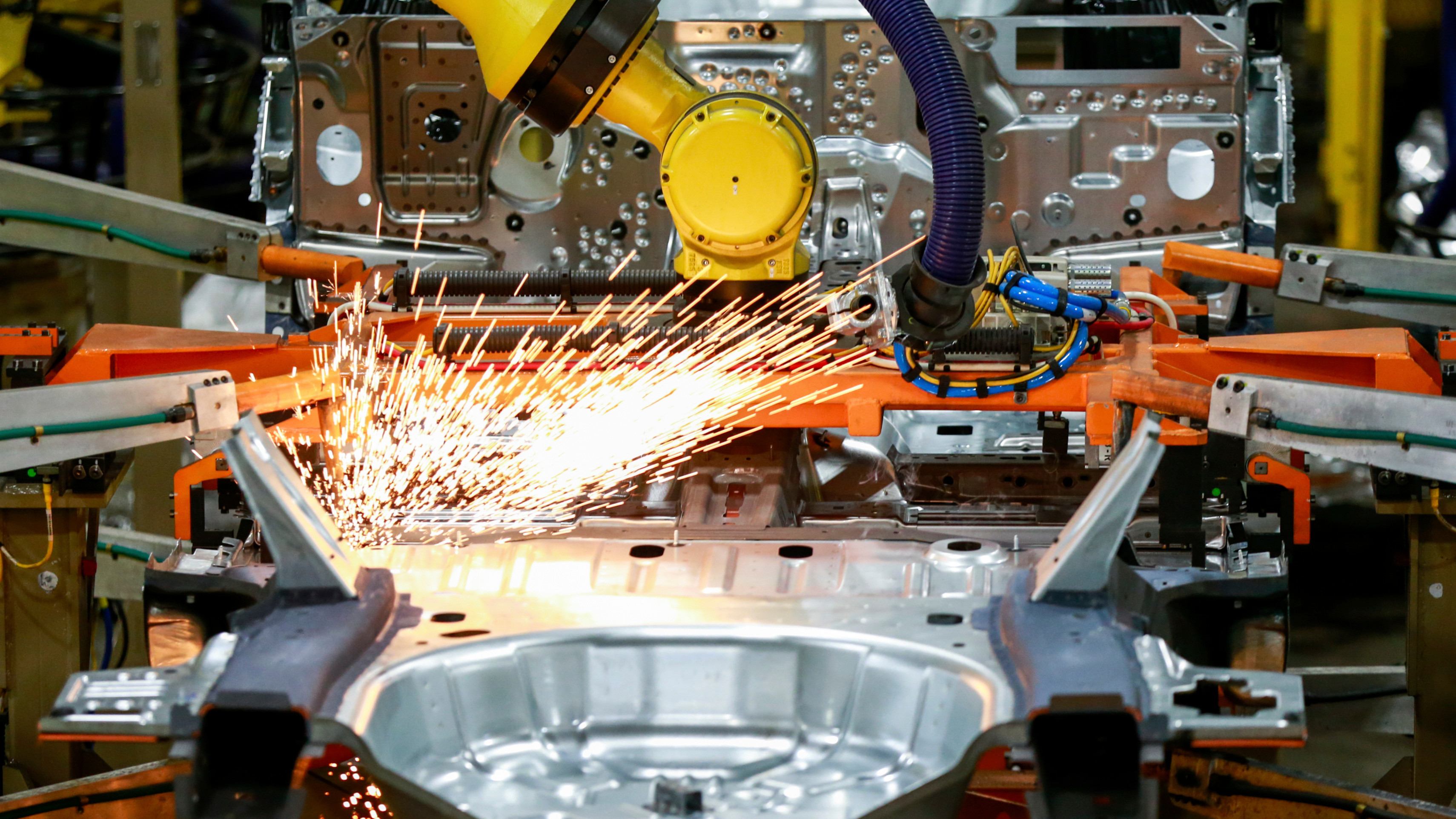This Is All Going To Last Longer Than We Think
When Ford, GM, and Fiat Chrysler first announced last week they would be idling plants to help contain coronavirus, they all earmarked March 30 as the day they might bring the workers back. This week, they reportedly decided that wasn't happening.
Reuters' David Shepardson has the scoop on GM and FCA, speaking with sources, while Ford put out a statement yesterday acknowledging that March 30 is no longer the target date to restart.
That statement read in part:
In light of various governments' orders to stay and work from home, Ford is not planning to restart our plants in the U.S., Canada and Mexico on Monday, March 30 as originally hoped.
While Shepardson reported:
Two people briefed on the matter said Ford does not plan to restart production until at least April 6 but warned it could be further delayed into April.
General Motors Co (GM.N) and Fiat Chrysler Automobiles NV (FCHA.MI) also do not plan to resume production on March 30, three people briefed on the matter said. It was unclear when they may resume production or if some plants could restart before others.
April 6 still feels enormously optimistic, given that auto manufacturing is in a gray area whether it's considered by the government to be an essential business or not, and many states have bans on non-essential businesses through the middle of next month. And that's all assuming that those bans themselves won't get extended, which seems likely given that the number of coronavirus cases is going up, not down. Today's reports of deaths and layoffs at FCA speak to that.
What will remain true throughout is that no one really knows how this will go, and despite President Donald Trump saying yesterday that he wants the country back in business by Easter, which is April 12, a lot of it isn't really up to him. The state bans on non-essential business, for example, were issued by states, not the federal government, and they will be lifted or extended by state government as well.
What that leaves for businesses like the Big Three is the worst of all worlds. Businesses hate uncertainty, and Trump's leadership style, or lack thereof, combined with the varied responses from state governments is one of their worst nightmares.
Wednesday did bring a small amount of good news for automakers, in the form of the $2 trillion coronavirus relief package agreed to in the U.S. Senate, but how exactly that would trickle down to them wasn't immediately clear.
From Bloomberg:
The plan includes about $500 billion that can be used to back loans and assistance to companies, including $50 billion for loans to U.S. airlines, as well as state and local governments. It also has more than $350 billion to aid small businesses. Then there is $150 billion for hospitals and other health-care providers for equipment and supplies.
The auto industry continues to wait for the specific terms of a trillion-dollar economic stimulus package, but the sector could get a slice of the pie through that envisioned $500 billion fund from the U.S. Department of Treasury, according to the Alliance for Automotive Innovation's top executive.
"It is fairly clear to me — again having been through 2008-09 and also in my conversations on Capitol Hill and with the administration — that there is definitely a focus on the auto sector. No question about it," John Bozzella, CEO of the Alliance for Automotive Innovation, said during a webinar Tuesday organized by the Center for Automotive Research.
"In terms of what the actual prioritization is and the use of the facilities would be is really going to be up to individual companies working with the Treasury and with the Fed," he said.
All of this will take time, and you can expect more statements from the Big Three in the weeks to come, possibly with the same verbiage Ford used yesterday in saying that it is "assessing various options." Meaning that, if the automakers begin to sound like they are making it up as they go along, that's because they are, because pretty much everyone is.
A more realistic timeline for everybody in any case was provided Wednesday by a Volkswagen board member, who said car production in Germany won't resume until this summer:
"We assume that Germany will return to normal in the summer," Juergen Stackmann, management board member for the VW passenger cars brand, told the Frankfurter Allgemeine Zeitung.
"We must learn how to live with the virus," he said.
